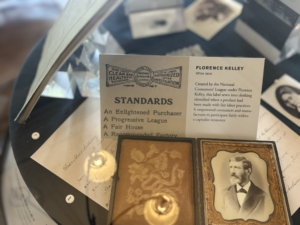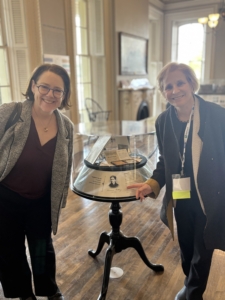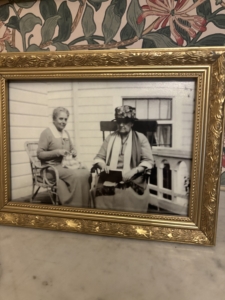By Daniel Greene, Senior Director of Consumer Protection & Product Safety Policy
If traffic safety were a war, we’d be losing.
Our nation suffers approximately 40,000 deaths and 2.6 million injuries to traffic crashes each year.
That’s enough fatalities to fill the average Major League Baseball stadium. Enough injuries to affect nearly every resident of the state of Alabama.
Traffic crashes cost society nearly a trillion dollars in medical bills, emergency services, lost productivity, insurance costs, workplace loss, legal costs, and property damage. That’s enough money to buy more than 26 million mid-size SUVs; ten million more than the total number of cars sold in 2024.
No Congressional district has been spared. No community is immune.
Yet, the death and destruction on our nation’s roads does not have to be the price we pay for commuting to work, dropping the kids off at school, or picking up groceries. By harnessing revolutionary safety technologies, educating the motoring public, and improving the design, construction and performance of motor vehicles, we can dramatically improve roadway safety.
Fortunately, there is a federal agency responsible for carrying out such activities. The National Highway Traffic Safety Administration (NHTSA) is our nation’s principal automobile safety regulator, charged with reducing death and injuries associated with traffic accidents. NHTSA carries out its lifesaving mission by establishing safety standards, investigating defects, enforcing recalls, and providing states resources for driver education, risky driving countermeasures, and roadside safety.
NHTSA has delivered. Safety features that were once rare and unique are now common and conventional: seatbelts, airbags, and crumple zones, to name a few. Many of these features were adopted to comply with increasingly ambitious safety standards. The result: fewer fatalities and injuries on our nation’s roads.
From 1968 through 2019, NHTSA’s safety standards prevented over 860,000 deaths, 49 million injuries, and damage to 65 million vehicles, generating over $17.3 trillion in societal benefits. In 2019 alone, standards prevented 40,000 deaths, 1.9 million injuries, and damage to 3.8 million vehicles.
NHTSA has also successfully taken unsafe vehicles off our nation’s roadways. Since 1968, NHTSA has participated in the recall of more than 390 million vehicles, 66 million pieces of motor vehicle equipment, 46 million tires, and 42 million car seats due to safety defects.
NHTSA has compelled manufacturers to replace tens of millions of volatile and explosive airbags, millions of defective tires prone to tread separation, and millions of sticky car seat buckles that entrap children. The agency has facilitated the remedy of millions of vehicles with incidents of unintended acceleration, millions of faulty ignition switches that deactivate the engine and airbags while a vehicle is in motion, and “self-driving” technology that cannot safely perform the driving task.
NTHSA is on the cusp of ushering in new transformational safety technologies that may exceed the lifesaving effects of seatbelts and airbags. The Bipartisan Infrastructure Law mandates that NHTSA support the deployment of several sophisticated safety technologies:
- Drunk and impaired driving prevention technology: Over 13,000 people were killed in drunk driving crashes in 2022.
- Crash avoidance technology: Forward collision warning and automatic emergency brakes have been shown to reduce injuries associated with front-to-rear crashes by 56 percent. Lane departure warnings could reduce single-vehicle, sideswipe, and head-on crashes causing injury by 21 percent. Blind-spot detection has been shown to reduce lane-change crashes that result in injuries by 23 percent.
- Driver monitoring systems: Distracted driving claimed an estimated 12,405 lives in 2021. Drowsy driving caused 664 deaths that same year.
Many of these requirements are actively being implemented but are not yet finalized.
With NHTSA on the beat, safety is a priority and not an afterthought. It must be built into the design, construction, and performance of each vehicle. It must be engrained in every bolt, sensor, and line of code of a vehicle.
But this vital safety agency is under unprecedented assault. Championed by Elon Musk and the Department of Government Efficiency, the Trump Administration has launched a shock and awe campaign, taking a chainsaw to the key pillars of a well-functioning government. The indiscriminate firing of civil servants, unlawful impoundment of congressionally directed spending, and work stoppages have had deeply destabilizing effects across the federal government. The chaos has wreaked havoc on NHTSA’s ability to carry out its most basic functions.
Approximately 1 in 20 NHTSA employees were fired in the February purge of probationary workers. That included researchers studying impaired driving and traffic safety measures. Several members of the Office of Defect Investigations, which is responsible for investigating defects and mandating recalls, have been dismissed. The Office has been increasingly scrutinizing Tesla, which Elon Musk owns. Employees within the Department of Transportation cannot access their former colleagues’ files, making it virtually impossible to continue their work.
Through an Executive Order, the Trump Administration has directed federal agencies to “identify at least 10 existing rules, regulations, or guidance documents to be repealed” for every new rule, regulation, or guidance that is promulgated. As of December, NHTSA had yet to finalize 19 rulemakings mandated by Congress, all through bipartisan legislation. In the Fall Unified Regulatory Agenda, NHTSA identified 56 ongoing rulemaking proceedings, some of which had been completed prior to Trump taking office. It may not even be possible for NHTSA to identify the hundreds of existing rules, regulations, and guidance documents necessary to finalize Congressionally directed and ongoing rulemakings while complying with the 10-to-1 rule.
If the past is a prologue, vital automobile safety activities may fall by the wayside. During the Biden Administration, NHTSA finalized 29 rules creating or modernizing safety standards. The first Trump Administration finalized only nine such rules. The Biden Administration conducted 224 investigations of potential safety defects. The first Trump Administration initiated only 103.
Worse yet, deeper cuts may be forthcoming. Every federal agency was required to produce an Agency Reduction in Force and Reorganization Plan by March 13, 2025. Such plans must seek to achieve significant staff reductions, reduced budgets, and reduced real property footprint.
Some are calling on NHTSA’s budget to be slashed by 60 percent and the workforce reduced by 30 percent, returning the agency to 1990s-era levels. Such plans include cutting state safety grants by 75 percent, slashing crash test facilities and testing by 75 percent, and ending vital safety initiatives like the adoption of the first female crash test dummy. Most Americans do not want to trade in their current vehicle for a 1990s model. We shouldn’t revert to a 1990s-era auto safety regulatory agency.
The death and destruction on our nation’s roads is not an inevitability, but a choice. A choice to not treat traffic safety like the public health emergency it so clearly is. A choice to remain complacent. A choice to accept the status quo.
I contend that America should make a different choice: no more victims. Let’s chart a course towards vision zero, in which there are no traffic fatalities or serious injuries. And let’s ensure we equip NHTSA with the resources, staff, and authorities necessary to make that vision a reality.




























